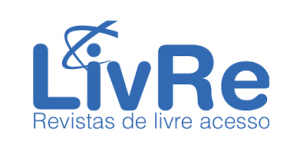THE LABOR REFORM - LAW 13.467/17; LEGAL POSITIVISM; POST-POSITIVISM AND JUDICIAL DISCRETION. ANALYSIS OF ARTICLE 8, PARAGRAPH 2 OF CLT.
DOI:
https://doi.org/10.55839/2358-7008RCDv12n1pa83-109Abstract
With the advent of Law 13.467/17, the notorious "Labor Reform", were introjected into the legal system a series of changes, whether in the field of material labor law or in the field of procedural law. Among these changes is paragraph 2 of art. 8º of the CLT, which establishes that "Precedents and other statements of jurisprudence issued by the Superior Labor Court and the Regional Labor Courts may not restrict legally provided rights or create obligations that are not provided for in law." The diction of the device, in a perfunctory analysis, may lead to the conclusion that the legislator intended to avoid/prevent the interpretation of the magistrates at the time of the application of law; thus, culminating in a return to exegetic positivism (judges as mere enforcers of rules). The objective of this work is to demonstrate that, despite the fear presented by the judiciary, exegetic positivism was long surpassed by the post-positivism, and legislative innovation should be analyzed based of the Theory of Law as Integrity of Ronald Dworkin; thus, avoiding only judicial discretion (Activism) at the time of law application, but not the judge’s interpretation of positive law.
Downloads
Published
How to Cite
Issue
Section
License
Copyright (c) 2024 A REVISTA REFLEXÃO E CRÍTICA DO DIREITO utiliza uma licença Creative Commons - Atribuição-Não Comercial BY-NC 4.0 Internacional. Os autores dos trabalhos aprovados autorizam a revista a, após a publicação, ceder seu conteúdo para reprodução em indexadores de conteúdo, bibliotecas virtuais e similares. A revista se permite o uso dos trabalhos publicados para fins não comerciais, incluindo o direito de enviar o trabalho para bases de dados de acesso público.

This work is licensed under a Creative Commons Attribution-NonCommercial 4.0 International License.
A submissão de artigos à REVISTA REFLEXÃO E CRÍTICA DO DIREITO está vinculada à licença da Creative Commons CC BY-NC 4.0 internacional. Através desta licença, o autor mantém seus direitos autorais, mas permite, para fins não comerciais, que as pessoas possam copiar e distribuir o seu trabalho, reservando os respectivos créditos, nas condições especificadas.
Ao submeter artigos à REVISTA REFLEXÃO E CRÍTICA DO DIREITO o (a) autor (a) já autoriza sua publicação, em caso de aceitação, após o devido processo de avaliação, ciente da política de acesso livre do periódico.
O autor (a) declara ciência de que serão publicadas todas as informações consignadas na submissão, incluindo nome, afiliação, titulação e endereço eletrônico.
Da mesma forma, o interessado, ao submeter o trabalho no site da revista, DECLARA QUE É AUTOR (A) DO TRABALHO, BEM COMO DO VÍNCULO DAS DEMAIS PESSOAS TAMBÉM APONTADAS COMO AUTORAS, assumindo inteira responsabilidade por tais declarações.
O periódico não cobra nenhum tipo de taxa. Todas as submissões, avaliações e publicações são gratuitas, bem como o seu acesso é aberto e também gratuíto.







